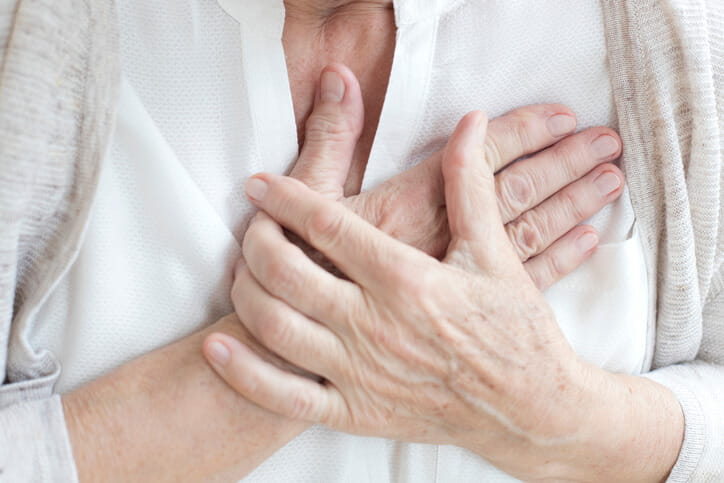The Difference Between Heart Attack, Heart Failure & Cardiac Arrest

People often use the terms heart attack, heart failure, and cardiac arrest interchangeably. While these heart complications are linked, they are three distinct conditions. Read on to learn about the difference between a heart attack, heart failure, and cardiac arrest.
Heart Attack
A heart attack occurs when blood flow to the heart is blocked. Blood clots, atherosclerosis, and fat and cholesterol deposits can all cause blocked arteries that lead to a heart attack. During a heart attack, the heart continues to beat, but oxygen-rich blood can’t reach the organ. The longer someone goes without treatment, the more damage there will be to the heart.
Symptoms of a heart attack
Heart attack symptoms can vary between men and women. Most warning signs include chest pain, shortness of breath, cold sweats, nausea, and vomiting. These signs often develop slowly over the course of hours, days or weeks. If someone is experiencing these symptoms, call 911 immediately.
Heart Failure
Heart failure happens when the heart cannot pump enough blood throughout the body. Coronary artery disease, high blood pressure, and diabetes can all cause heart failure. Those who are 65 or older, overweight or have previously had a heart attack are at a higher risk. Men are also more likely to suffer heart failure than women.
Symptoms of heart failure
When the heart’s pumping ability weakens, blood and fluid may back up into the lungs; swelling of the feet, ankles and legs can occur; and those affected will experience tiredness and shortness of breath. To treat heart failure, a doctor must first determine the underlying cause.
Cardiac Arrest
Abnormal heartbeats, called arrhythmias, can cause the heart to beat too quickly, too slowly or to stop beating altogether. When complications from arrhythmia cause the heart to stop beating entirely, it’s called cardiac arrest. Underlying causes associated with cardiac arrest, include coronary heart disease, physical stress, and hereditary disorders. Cardiac arrest can also occur with no known cause. Without treatment, someone who experiences cardiac arrest will die within minutes.
Symptoms of cardiac arrest
Moments after cardiac arrest, the affected person will become unresponsive and be unable to breathe. Cardiac arrest can be reversible if treated quickly. Call 911 and begin CPR immediately. If a defibrillator is close at hand, use it as soon as possible.
Heart Attack vs. Heart Failure vs. Cardiac Arrest
Heart attack, heart failure, and cardiac arrest are serious, but separate, conditions that should be treated as an emergency. A heart attack is when blood can’t reach the heart; heart failure is when the heart fails to circulate blood properly; cardiac arrest is when the heart suddenly stops beating.
Whenever someone exhibits chest pain accompanied by shortness of breath, seek medical attention or visit the nearest emergency room.
Learn more about Baptist Health Heart Care or find a specialist near you.



